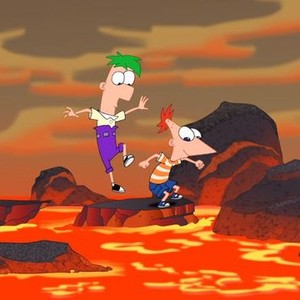It has been about 4.6 billion years since the formation of the atmosphere and earth. Around 500 million years ago did the air become inhabitable for life as we know it. Only about 6 million years ago did our earliest ancestors walk the earth and most importantly, there is only 104 days of summer vacation and school comes along just to end it.
My name is Nicholas and I am by no means a professional on the history of time but I am sure you are wondering: why the comparison between the timeline of life as we know it, and Phineas and Ferb? Let's talk about it.
Phineas and Ferb were able to create around 180 inventions during their 104 days of summer vacation. A staggering rate of creation, destruction and recreation during a small time that they had. All while still managing to evade Candace, their sister, exposing the creations to their parents. I compare this to Earth. Take the start of summer vacation as the birth of Earth, and the end of vacation as today, all while not getting whipped out by a giant asteroid or star explosion (Candace exposing her brothers creations). It is actually quite remarkable that we are where we are today, similarly that it is borderline unbelievable that the dynamic duo barely ever get found out.
In the context of Earth, the creation of it took place around 4 and half billion years ago through the mixture of gas and dust due to gravity, resulting in collision after collision forming the 3rd rock from the sun. During this time (the Hadean), the Earth was just like a hot summers day, inhabitable and in desperate need of water and shade and I guess with the occasional (not occasional at all) volcanic eruption.
3.8 billion years ago, the earth cooled, the crust formed and water vapour that was in the atmosphere condensed and large bodies of water formed. This environment became more habitable for life and this period, known as the Archean, is where the first life forms (bacteria) lived . An extremely important milestone for further eons. This discovery being arguably as important as Phineas and Ferb finding Frankensteins brain, this, however, is still up for debate.Earth stayed a cold, wet place for a long time (roughly 1.5 billion summer vacations long), however, during this time, bacteria was able to convert energy it absorbed from the sun and turn it into oxygen leading to an oxygen ocean and then after that, an oxygen rich atmosphere. This was known as the Great Oxidation Event. During this time, oxygen mixed with methane in the atmosphere and a series of cooling and warming events led the Earth into being a hub for complex organisms to form and most importantly, thrive. Almost like Phineas and Ferb's bio-dome, this creation allowed for ideal conditions for certain activities to take place, similarly as to how the Earths atmosphere was ideal for the creation of complex life.







Comments
Post a Comment